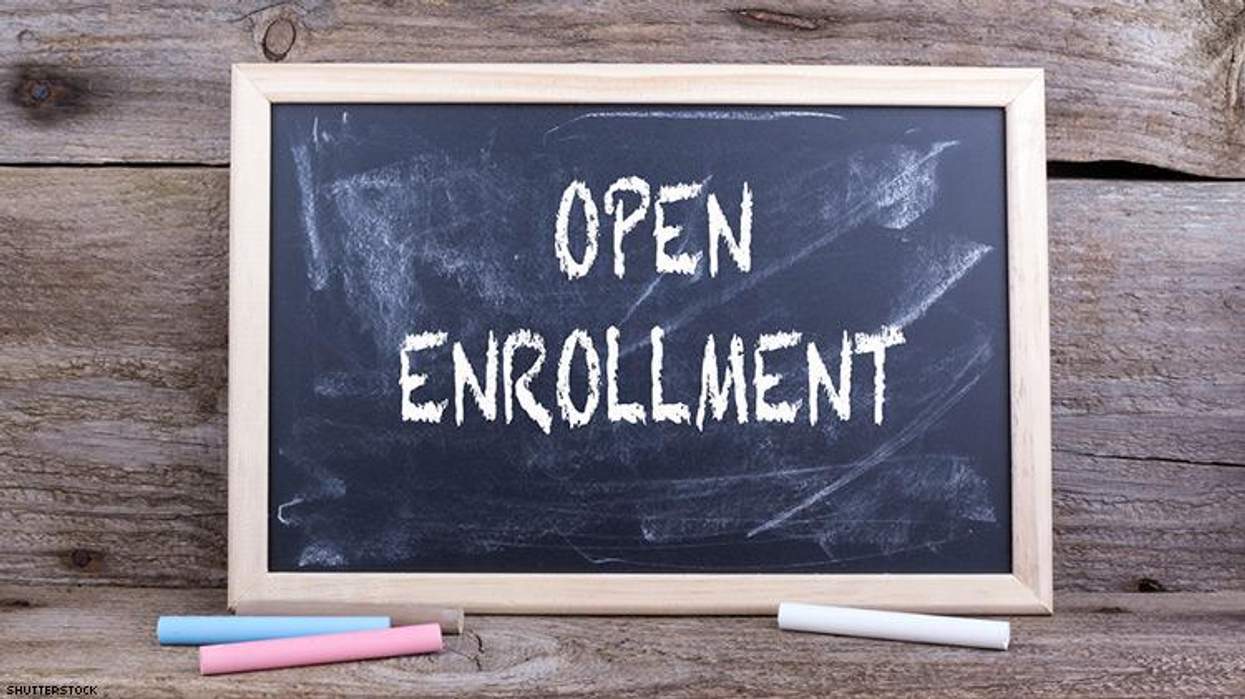With the open enrollment season upon us, it is critically important for us to look at what's at stake for the Affordable Care Act. Republicans in Congress and the current administration continue to look to dismantle the ACA and strip coverage from tens of millions of Americans, which would have devastating impacts on the LGBTQ community. But we have the power to stop them -- and it starts with signing up.
Since the Affordable Care Act was signed into law in 2010, members of the LGBTQ community -- particularly transgender people -- have had life-changing access to care.
Before the ACA, many insurance companies flat-out refused to provide coverage to transgender people because they considered being transgender to be a preexisting condition. LGBTQ people are historically more likely than others to be uninsured, but now, due to the fact that the ACA bans insurance companies from refusing coverage, more transgender individuals are able to get the health care they need.
In 2013, before the ACA's coverage reforms took effect, one in three LGBTQ people making under $45,000 a year were uninsured. That rate has dropped steadily through the last few years, and now the uninsured rate among LGBTQ people is down to one in five.
And thanks to nondiscrimination regulations that were issued by the Department of Health and Human Services in 2016, more insurance plans than ever before have eliminated blanket exclusions on transition-related health care. The same regulations also ban anti-transgender discrimination by health care providers like clinics and hospitals. Before these regulations were issued, one in three transgender adults had been mistreated, harassed, or denied care by a health care provider just because they were transgender, showing just how necessary those regulations are.
The open enrollment process for 2018 looks slightly different than it has in previous years. Some things haven't changed: You can still enroll at Healthcare.gov, and the regulations mentioned above are still in effect -- which means that transition-related health care is still protected. But there are a few changes in the process you should know about.
- Enroll now. The open enrollment period is half as long as it has been in previous years. Enrollment began November 1, and unlike previous years, when there were three deadlines, there is only one deadline to enroll this year: December 15. If you miss that deadline, you won't be able to enroll in health insurance until next year -- unless you have a qualifying life event, which most people will not.
- Healthcare.gov will also be shut down from midnight to noon (Eastern time) every Sunday during the enrollment period, except on December 10. When you're deciding on a time to sit down and shop for plans, make sure it doesn't fall during one of the maintenance periods.
We know that navigating health insurance plans can be confusing. Thankfully, our friends at Out2Enroll have a network of enrollment assisters so that you can find someone local to walk you through finding health insurance.
Make a plan to get you and your family covered now, so you -- and the rest of us -- can keep fighting for the care we need. There is a lot of uncertainty about the future of health care, but our fight for the LGBTQ community has always been defined by resilience. Throughout the last decade, we have seen that positive change is possible. We can't give up the fight.
VALERIE JARRETT is a former senior adviser to President Barack Obama and former chairwoman of the White House Council on Women and Girls.
MARA KEISLING is the founder and executive director of the National Center for Transgender Equality, the nation's leading social justice advocacy organization winning lifesaving change for transgender people.















